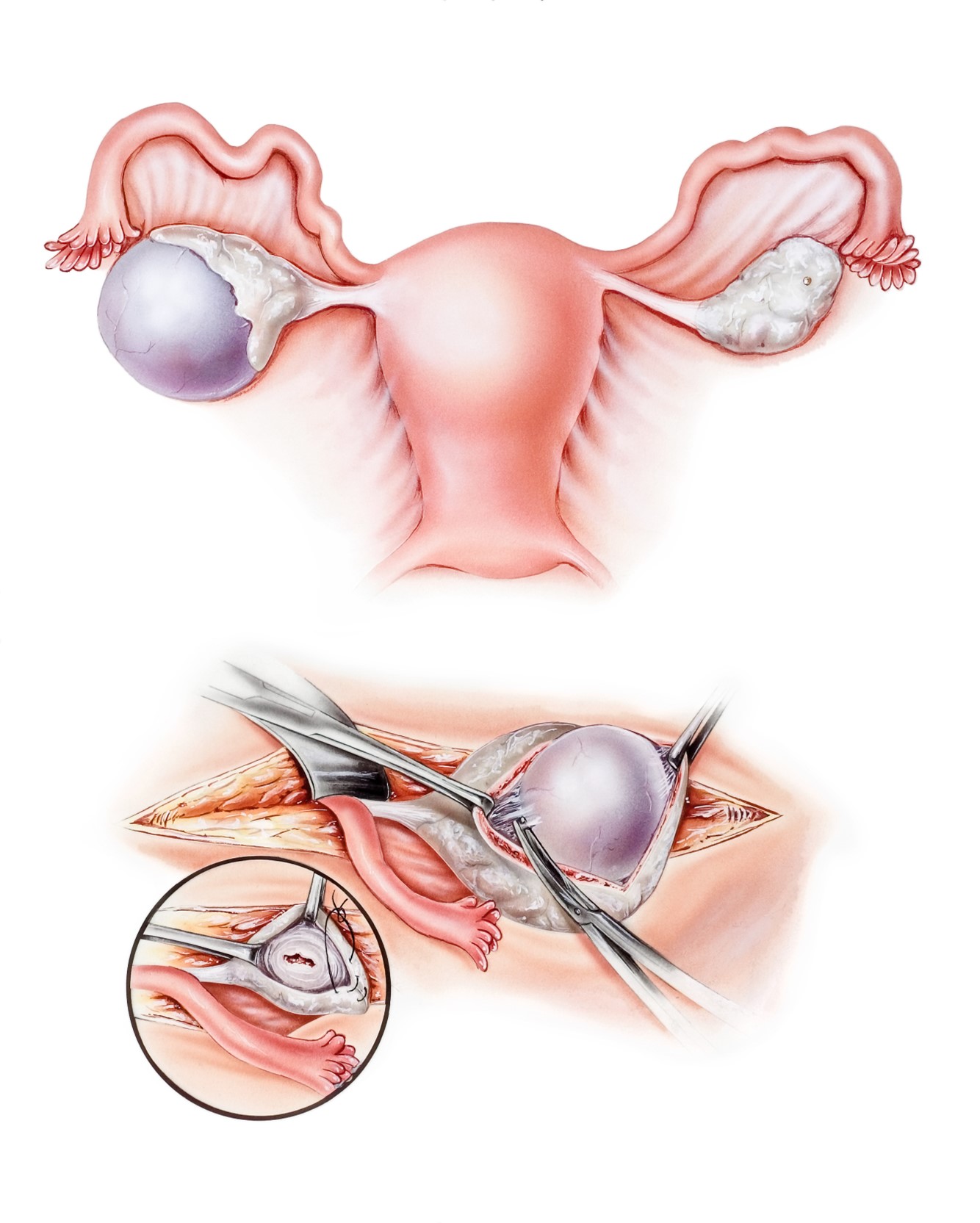Ovarian cysts are prevalent growths that develop either within or on the surface of the ovaries. These cysts, typically containing fluid or semi-solid material, can vary in type and often go unnoticed as they are frequently harmless, asymptomatic, and resolve without intervention.
However, there are instances where cysts may pose complications requiring medical attention. Regular pelvic examinations play a crucial role in detecting and managing any potential issues associated with ovarian cysts.
Types of Ovarian Cysts
Most ovarian cysts fall under the category of functional cysts, which are linked to the menstrual cycle’s natural processes. These cysts often resolve on their own within a couple of months.
However, there are also non-functional cysts, including cystadenomas, dermoid cysts, endometriomas, and ovarian cancerous tumors, which require closer monitoring due to their potential for complications.
Symptoms and Causes
The leading cause of ovarian cysts is ovulation, although other factors such as abnormal cell growth, endometriosis, and pelvic inflammatory disease can also contribute to their development.
Symptoms of ovarian cysts may vary widely, with smaller cysts often remaining asymptomatic while larger ones may cause pelvic pain, bloating, discomfort during intercourse, or irregular menstrual cycles.
Diagnosis and Testing
Diagnosing ovarian cysts typically involves pelvic examinations and imaging tests such as ultrasounds or laparoscopy. These procedures help in determining the size, location, and nature of the cyst, aiding in the formulation of an appropriate treatment plan.
Management and Treatment
Treatment approaches for ovarian cysts depend on various factors, including the individual’s age, symptoms, and the nature of the cyst itself. Options range from watchful waiting for functional cysts to surgical interventions for larger or symptomatic cysts. Medications containing hormones may also be prescribed to regulate ovulation and prevent the formation of new cysts.
Prevention
While it may not be possible to entirely prevent ovarian cysts, certain measures such as hormonal contraceptives may help in reducing their recurrence. Regular pelvic examinations and prompt reporting of any symptoms are crucial in early detection and management.
Living With Ovarian Cysts
Individuals diagnosed with ovarian cysts should remain vigilant about any changes in symptoms and adhere to the doctor’s recommendations regarding follow-up appointments and treatment plans.
In case of endometriotic cyst or cysts which required surgery, it impacts fertility, making it challenging to conceive, better to freeze oocytes before going for surgery
Close communication with doctors facilitates timely intervention and promotes overall well-being.








